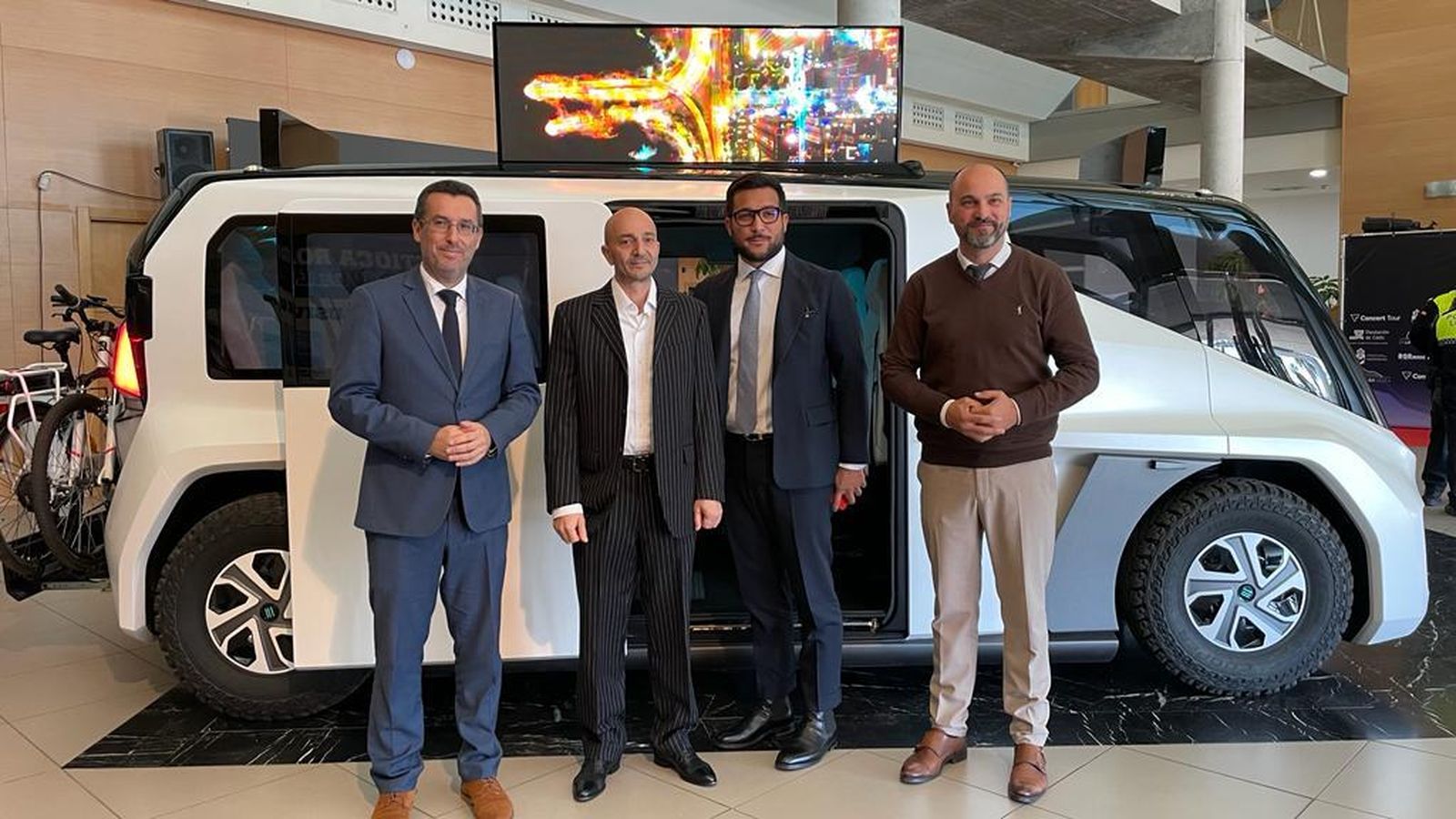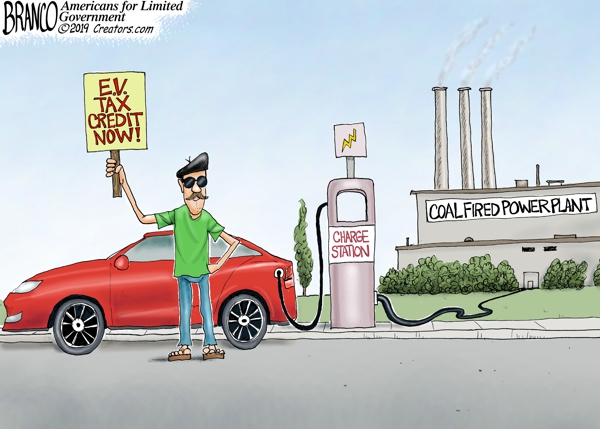The Gibraltarian company Etioca is studying the implementation of an electric vehicle assembly centre in Los Barrios, which would have a technology division in La Línea. The project is still at a very early stage, although the company has a deadline of a year and a half to build a plant for the assembly of taxis and delivery vehicles in Los Barrios, with an R&D&I technology centre in La Línea. The planned investment is between 200 and 250 million euros in an area of 25 hectares and the creation of 800 to 1,200 jobs.
The initiative was presented this Thursday at the Palacio de Congresos de La Línea in the presence of the mayor, Juan Franco; the mayor of Los Barrios, Miguel Alconchel; the owner of Etioca, Mark Ishakov, and the engineer, Roberto Fiorello.
Etioca has a prototype electric vehicle, called Miner, which has the most advanced technology and is aimed at the taxi and last mile parcel delivery sectors. It is a new concept of a multi-function electric vehicle, without architectural barriers, with a range of over 300 kilometres and a quick battery exchange recharging system.
The Etioca taxi can seat seven people and has dynamic advertising panels with LED technology. Its use is also innovative, as integrated payment and management software is provided. The driver does not have to buy the vehicle and only pays for the mileage he travels with it. It is also planned that during its operation it will be able to participate in the mining of the Etioca Eco cryptocurrency.
Etioca Miner

ETIOCA Taxi Miner Film
The plant that the company wants to build in Los Barrios would include the installation of a plant for the collection, disposal and reuse of waste, with the aim of converting it into energy to power the batteries, thus achieving a system that produces zero emissions and reduces existing waste to zero.
Juan Franco explained that the project is still in a preliminary phase in which "conversations are being held" and advanced that there is the possibility of signing "a memorandum of understanding" between the two municipalities and Etioca with the idea of "creating an engine of growth and generation of wealth for the two municipalities".
For the councillor from La Línea, the new PGOU will make it possible to set up a technological centre of excellence in the current fairgrounds, in which, in addition to the companies WiseKey and Fossa Systems, Etioca could have a place. He also understands that the institutes in which Vocational Training is provided, such as the Virgen de la Esperanza, could provide specific technological training for the jobs required.
Miguel Alconchel expressed his satisfaction at "participating in a project for the future with La Línea" and expressed his hope that this type of idea will become a reality and enable "the region to take off".
The presentation of this project was also attended by the coordinator of the AGE in Campo de Gibraltar, Francisco Gil; representatives of the Civil Guard, National Police and Local Police, businessmen from various sectors, including the taxi sector, as well as members of the government team.

